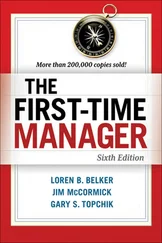Джон Болл - The First Team
Здесь есть возможность читать онлайн «Джон Болл - The First Team» весь текст электронной книги совершенно бесплатно (целиком полную версию без сокращений). В некоторых случаях можно слушать аудио, скачать через торрент в формате fb2 и присутствует краткое содержание. Год выпуска: 2013, Жанр: Триллер, на английском языке. Описание произведения, (предисловие) а так же отзывы посетителей доступны на портале библиотеки ЛибКат.
- Название:The First Team
- Автор:
- Жанр:
- Год:2013
- ISBN:нет данных
- Рейтинг книги:5 / 5. Голосов: 1
-
Избранное:Добавить в избранное
- Отзывы:
-
Ваша оценка:
- 100
- 1
- 2
- 3
- 4
- 5
The First Team: краткое содержание, описание и аннотация
Предлагаем к чтению аннотацию, описание, краткое содержание или предисловие (зависит от того, что написал сам автор книги «The First Team»). Если вы не нашли необходимую информацию о книге — напишите в комментариях, мы постараемся отыскать её.
Student protesters are being slaughtered in the Midwest.
The Jewish pogroms have begun.
You are now living in Soviet — occupied America!
One nuclear submarine and a handful of determined patriots against the combined might of Russia and Soviet-occupied America… The Most Explosive and Gripping “What If” Novel of Our Time!
First published January 1971
The First Team — читать онлайн бесплатно полную книгу (весь текст) целиком
Ниже представлен текст книги, разбитый по страницам. Система сохранения места последней прочитанной страницы, позволяет с удобством читать онлайн бесплатно книгу «The First Team», без необходимости каждый раз заново искать на чём Вы остановились. Поставьте закладку, и сможете в любой момент перейти на страницу, на которой закончили чтение.
Интервал:
Закладка:
The news vacuum was filled by an undisciplined mass of rumors which scurried back and forth like a maze of molecular particles. Some were cautious, but most were fearful, wild, irrational, frightful, uncertain, terrifying, fanciful, and at times distorted beyond any hope of reality. In mid-America the report was rife that the granaries would be rapidly emptied for shipment of their contents overseas and that severe rationing would face the American public during the winter to come.
The news blackout was followed by sharp restrictions on travel; flights from one part of the country to another were permitted only after specific permission had been granted for each individual trip. The commercial airlines reduced their schedules to the minimum, but the larger aircraft still flew half empty. Enemy uniforms began to appear everywhere while the now controlled radio and television stations constantly warned that any attempt whatsoever to impede the actions of the men who wore them would be severely punished.
For the first time in living memory Americans were forced to keep their women at home and out of sight. It all became part of the larger picture, the still incredible circumstance that the nation had been defeated — that an aggressor had been able to impose his will by force of arms, and that the decimated military of the United States had not been equal to the challenge. It had happened before in world history to many different countries and peoples, but never to the land of the free and the home of the brave, the land of Patrick Henry, of Ethan Allen, Thomas Jefferson, John Hancock, Abraham Lincoln, Theodore Roosevelt, and Harry S. Truman. The nation desperately wanted a leader who could do something about all this, but no such man appeared. The President was somewhere out of sight for his own protection and safety, but in the cold gray light of this disastrous dawn he was seen revealed as a choice of political expediency, adequate to do a satisfactory job, but far from the man that the country so urgently needed.
In a few places individual Americans remembered the time that a retired admiral had had his say before a congressional committee, but he was dead. The citizens of the United States had only one choice open to them, and that was to do as they were told.
Of all the Americans in this plight, those who had the greatest cause for concern were Jewish. Some few of them who still bore tattooed numbers on their forearms were bitter to the point of denouncing life itself and asked their God what they had ever done in their history as a people to deserve this deadly final blow. Some found no answer and quietly took their own lives; double suicides by elderly couples whose children had married and moved away passed unnoticed by the limited, tightly censored, daily press.
There were others who viewed the new policy as a heaven-sent opportunity to escape from the grasp of a vicious enemy known to be anti-Semitic long before the beginning of the period of goodwill which had immediately preceded the sudden outbreak of the war.
At Kennedy International Airport the employees of the largest American overseas airline were doing their best to handle the tide of passengers. Yiddish-speaking personnel were pressed into emergency service when it was discovered that many of those going abroad had never learned the English language.
Most of the passengers booking during the first thirty days were only too glad to leave behind a country which had suddenly shifted from one where certain restrictions still existed in a few areas to one wherein anyone born a Jew might well be in growing peril of his life.
In the hastily constructed lounge for departing refugees the scene brought back memories of train terminals during World War II. People slept, babies cried, mothers changed diapers without worrying whether they and their infants were on public view or not. Some complained and a few demanded; the majority simply waited for the opportunity to climb on board an aircraft, occasionally feeling again the slight bulge on their persons where they had their extra money concealed. As far as was known, no one had as yet been subject to search.
Threading their way through the several hundred waiting people were three individuals in a little group who were trying their best to make a systematic circuit of the whole area. Very little attention was paid to them; those who were nearby sensed that they were not Jewish and in view of the circumstances which prevailed, slightly resented their presence. Despite the fact that all of the people who were ticketed for overseas were leaving on their own volition, a tight sense of suppressed misery could almost be felt in the air. They were going, but they were not happy, even those who had relatives waiting to greet them and make them feel welcome. Some few of them had relatives waiting ready to tell them that they were not wanted and that God only knew how they were to be taken care of or housed.
The public address system came on with the announcement that the 747 was still in the hands of maintenance and hopefully would be released within the hour. The announcement created little stir. Despite the fact that scheduled airline operations had been cut back to a bare minimum, the aircraft shortage was drastic because of the enemy’s appropriation of almost all of the long-range equipment.
Mrs. Sarah Rappaport eyed the cruising trio and hoped that she would not be disturbed by its members, whatever it was that they were doing. She was fully occupied, in her mind at least, by taking care of little David, aged seven, and Marsha, who was two. She was booked for the flight out on the urgent advice of her husband who, heaven knew, was a genius. From a humble beginning in the Bronx he had moved ahead so fast on Wall Street that he was already in the research department of one of the biggest brokerage houses in the country. Danny Rappaport was smart, everyone who knew him agreed on that, and when Danny had told her that the sooner she got out of the country with the kids the better, she had had no choice but to follow his direction. She did not wish to leave; she wanted to remain to enjoy the rich, if strictly Jewish, social life that she was enjoying on a neighborhood level. The money that Danny was beginning to make had elevated her position somewhat and she was human and feminine enough to like it. Now it all had to be thrown away because the government had fouled things up again. With a Jewish President, maybe, it wouldn’t have happened; he would have been smarter.
Over the transatlantic telephone Danny had made all of the arrangements. Old Morris Rappaport had not been too enthusiastic, but he had reluctantly agreed to look after Sarah and the children until Danny could join them. Danny would stay as long as he felt he could despite the fact that the market was all but closed down; he was making money giving advice to people and as long as he could do that he was going to stay on the job. No, he had told old Morris, he wasn’t taking any chances, it was just that every day he could stay on the street he would make that much more money, and in view of the uncertainty ahead, every bit of it might be needed to tide them over until they could come back safely once more. Then, if he had enough left, he would consider opening his own firm.
“Pardon me.”
Sarah looked up and stiffened a little; the three people were beside her and since the man had spoken, she could not ignore them.
“What is it?” she asked. She looked at the man and decided that he was not bright. His straw-colored hair was brushed back in a way that a clever businessman would have avoided; the open features of his face were not smooth and urbane like her Danny. His suit was ready-made and had cost only about sixty-five dollars. He was a schlemiel.
“I’m Reverend Jones,” the man said, “from the Church of the Little Shepherd. This is my wife Doris and our son Greg.”
Читать дальшеИнтервал:
Закладка:
Похожие книги на «The First Team»
Представляем Вашему вниманию похожие книги на «The First Team» списком для выбора. Мы отобрали схожую по названию и смыслу литературу в надежде предоставить читателям больше вариантов отыскать новые, интересные, ещё непрочитанные произведения.
Обсуждение, отзывы о книге «The First Team» и просто собственные мнения читателей. Оставьте ваши комментарии, напишите, что Вы думаете о произведении, его смысле или главных героях. Укажите что конкретно понравилось, а что нет, и почему Вы так считаете.












